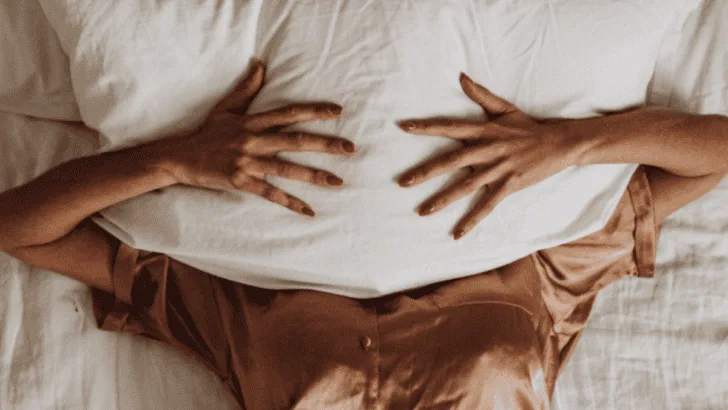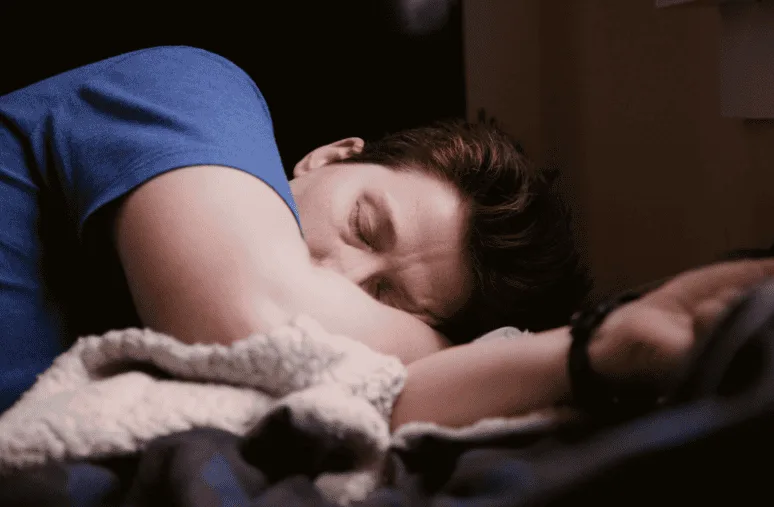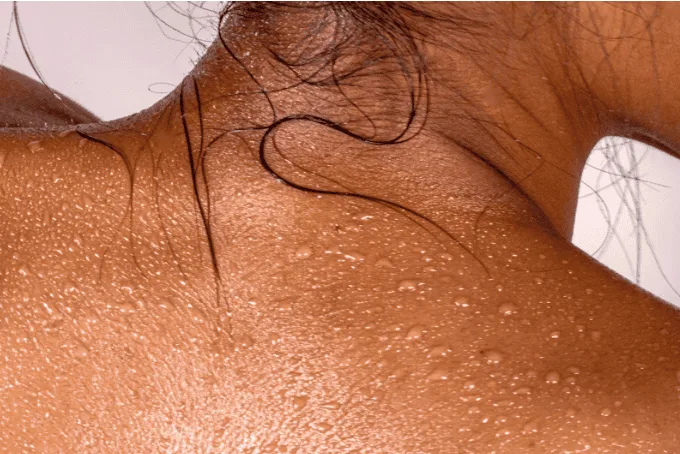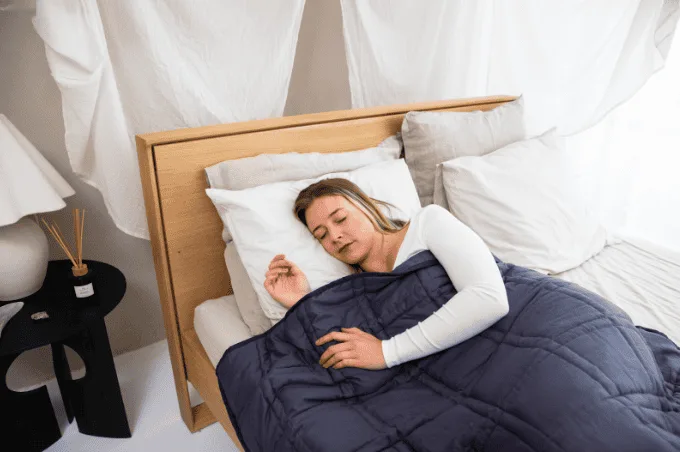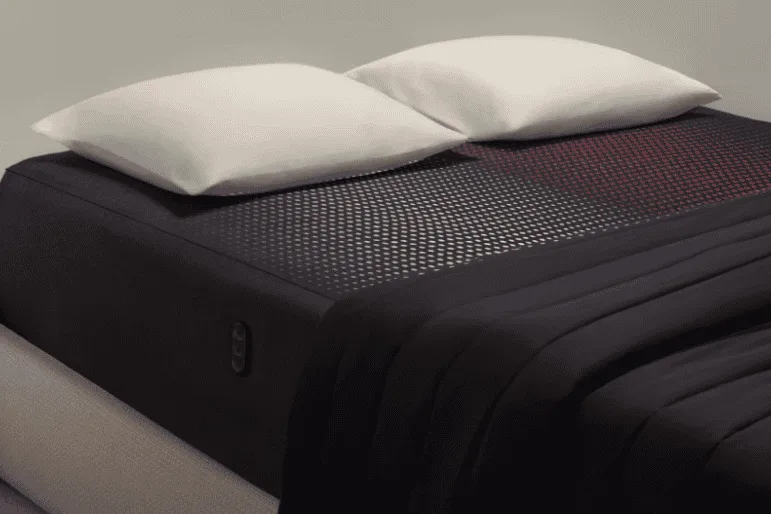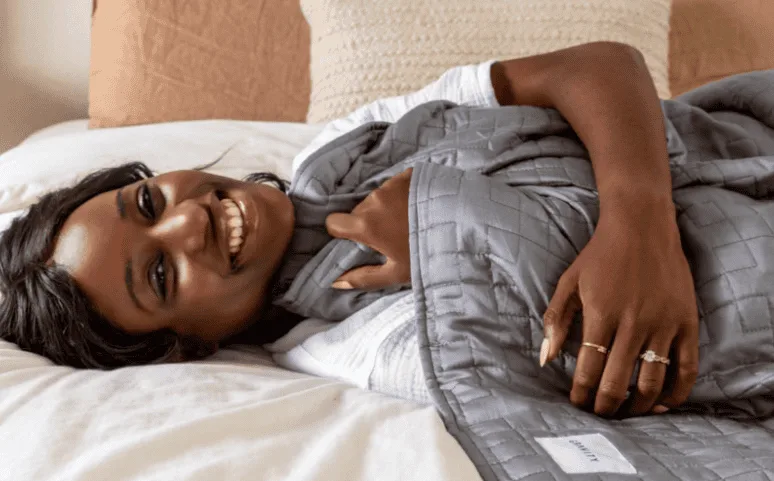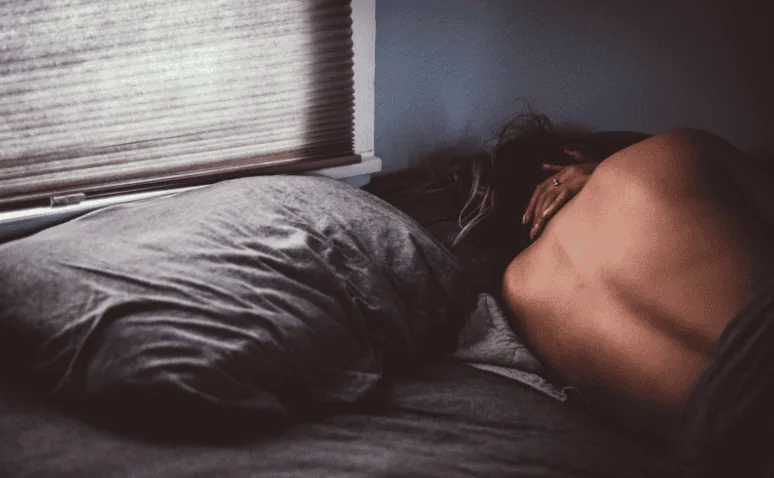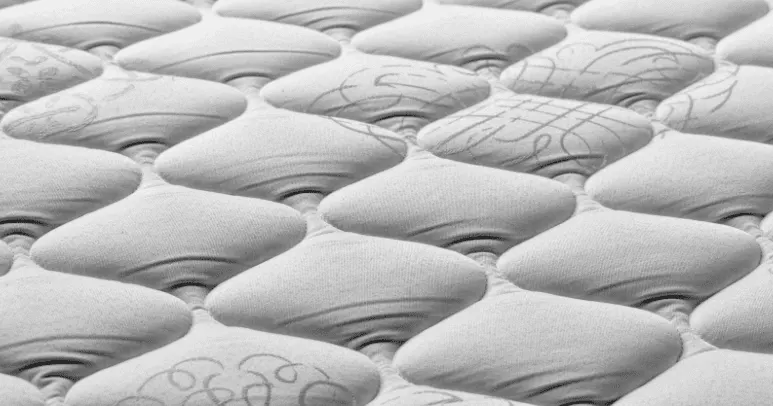- Eight Sleep Pillow Review: My Experience with a Cooling Memory Foam Pillow - January 23, 2026
- Parachute Robe Review: Comfortable Nights, Luxurious Mornings - November 12, 2025
- Chilipad Dock Pro Bed Cooling System vs. Eight Sleep Pod 5 - October 30, 2025
Menopause might be “natural,” but it brings a lot of changes that can wreak havoc on your sleep.
Whether you’re dealing with hot flashes and night sweats or sudden hormone-driven anxiety, you might find it harder to fall asleep and stay asleep, which only makes the daily struggle even more difficult.
Key Takeaways:
- Hormonal changes during the menopause transition can affect your body’s natural temperature control, but they can also disrupt sleep and lower the quality of your rest (insomnia, frequent waking, shorter sleep duration, among others).
- Although talking to your doctor is a given, there are changes you can make to your sleep environment that will keep it cooler and more comfortable at night if your hot flashes and night sweats are out of control.
- Lifestyle changes are important too, and that includes being aware of stress and practicing (at least a little) self-care each day.
Understanding how menopause affects your sleep is the first step toward fixing the problem, but I’ll also share several practical strategies that might help you to get better rest at night (finally).
The Biology Behind Hormonal Changes (And How They Affect Your Sleep)
During perimenopause (the transition into menopause), your ovaries essentially start petering out, which means your body’s levels of estrogen, progesterone, and testosterone begin to fluctuate. This can cause a host of symptoms that include hot flashes, night sweats, anxiety or mood disturbances, vaginal and sexual changes, and, of course, sleep disturbances.
I could write an entire essay on menopausal changes, but I’ll save you from the dissertation since we’re focusing specifically on sleep. In order to get a better night of rest, it’s important to understand what’s really happening inside your body and how it’s affecting your sleep, especially since, according to a 2025 study, there’s “still a lack of standards on the appropriate management and treatment of sleep disorders in perimenopause.”
(What that means, as far as I’m concerned, is that you need to be your biggest advocate for seeking relief.)
Estrogen and progesterone fluctuations: These not only affect your body’s thermoregulation throughout the night, but they can cause disruptions that include insomnia, sleep-disordered breathing, more frequent waking, shorter sleep time, and lower sleep quality overall. If that wasn’t rough enough, sleep-related movement disorders like restless leg syndrome and period limb movement disorder (which often occur together) might affect your sleep, as well.
Vasomotor symptoms: Night sweats and hot flashes are exceedingly common in women dealing with perimenopause and menopausal hormone changes. Your body’s internal temperature rises (the start of the hot flash), but then your body initiates a cooling response, which causes the skin flushing and sweating that immediately follows.
Hot flashes disrupt sleep since they can wake you at any point throughout the night, but they can also make it harder to fall asleep in the first place. And when you’re dealing with night sweats, you might find yourself waking up in the middle of the night, drenched and hot, but then getting cold once your temperature normalizes again (and the air cools that sweat). It’s a lather-rinse-repeat scenario that I know all too well.
But these vasomotor symptoms are also strongly correlated with mood disturbances, including anxiety, stress, and depression. (And none of those are good for your sleep quality, either.)
Circadian changes: Low levels of estrogen are connected to the amount of melatonin your body is able to produce on its own. Melatonin naturally increases (or rather, is supposed to) when it’s dark outside, helping your body to maintain its circadian rhythm. During perimenopause and menopause, however, melatonin production decreases, and you might find yourself staying awake later, waking up later, or having a harder time falling asleep, period.
Some women also experience an increase in cortisol during the later stages of menopause, which can further suppress melatonin. When your circadian rhythm is healthy, cortisol lowers at night and then rises in the morning (to make you more alert). A lack of sleep can raise cortisol levels, which further disrupts your overall rest.
What Hormonal Changes Really Feel Like
Hormonal changes can creep up slowly or appear almost overnight, and sometimes you might not even be sure “something” is happening.
I didn’t fully realize what was happening to me at first because I (mistakenly) thought my hot flashes were thyroid-related. I’d get hot all of a sudden, and my heart would beat a little faster, but I’d experienced that in the past when my thyroid levels were out of whack…
As it turns out, it didn’t take long to figure out that I was dealing with perimenopause once I had a bloodwork panel done.
My hot flashes typically creep along my upper back, shoulders, and neck, before reaching my face, and then they often move down my lower back and upper thighs. I wear glasses, so it’s common for them to literally fog up (which is SO frustrating). I keep a foldable fan nearby and that helps them to de-fog quickly, but it’s still a pain to deal with.
Hot beverages like the morning coffee I can’t live without, or even a hot dinner, for that matter, would spark a hot flash in an instant. If I felt any stress or anxiety during the day, that too could start a hot flash.
And I’ve never been an anxious person, by the way. Most people (including my husband) would say I’m a little too laid back… nothing ever riled me, and even in the face of truly stressful situations, I was very go-with-the-flow and it’ll all be fine, don’t worry.
But I found myself feeling anxious. Like I was worried about something, but that something was… nothing.
Things were at their absolute worst at night, though.
I’m someone who sleeps most comfortably when I’m bundled under cozy, soft blankets like a human caterpillar inside a cocoon. The moment I’d get comfortable and think “Ahh, I’m so warm and cozy, this is delightful,” I’d feel a hot flash coming on.
So I’d pull the blankets off to let the air cool my skin. Within five minutes, I’d feel comfortable… and five minutes after that, I’d start to feel cold. So I’d pull the blankets back on again, get comfortable… again… enjoy the warm and cozy sensation I love, again… and before long, I’d feel another flash coming on.
Again.
It took hours for me to fall asleep, and I was restless all night since I’d wake up hot and sweaty, cool off, get cold, and be stuck in that loop until I got up in the morning.
To say I was miserable would be an understatement. For a while, at least until I got things (mostly) under control, I was so sleep-deprived it wasn’t even funny. I was getting maybe a few hours of sleep each night, and over time, I was experiencing cognitive decline during the day. I’m a writer, so finding words is basically my job, right? Couldn’t come up with the right words for things, or I’d forget simple tasks I’d done a thousand times before.
(My family still has not let me live down the time I incorrectly calculated the roasting time for a chicken at 8 minutes per pound, instead of the proper 20.)
My point is that sleep (or a lack of it) affects SO much of your day, and if you’re dealing with hormonal changes yourself, you need to do whatever you can to make sure you’re getting the best rest possible at night.
Sleep Solutions For Better Rest Despite Hormonal Changes
I’ve tried a lot of things to improve my sleep during perimenopause. Some have worked better than others, so I’ll share some of my best advice as far as what’s actually been effective—or might be, for you.
Everyone’s situation is different, so it’ll likely take a little trial and error to dial in your best night of sleep. But it’s worth the effort in the end, I promise.
Talk To Your Doctor
This one might be kind of obvious, but if you suspect you’re dealing with perimenopause or menopause, it’s important to discuss this with your doctor to make sure that’s what is actually happening.
Like I mentioned earlier, I initially thought my hot flashes and racing heart were thyroid-related, and it wasn’t until I saw my doctor and got the blood work done that I knew for sure.
Treatment options might include hormone replacement therapy (HRT), but they might also present other (non-hormonal) options. In my case, I was started on a low dose of Effexor to control hot flashes, which worked a treat and also helped with the perimenopausal anxiety.
My point? Making an appointment with your doctor should be the first step toward finding solutions.
Changing Your Bed’s Actual Climate
I mentioned earlier that I’m a cocoon-sleeper: I need to be under blankets and snuggly in order to sleep. And cooling sheets really weren’t getting the job done.
So I got an Eight Sleep system for my bed. Which, yes, I admit that’s a serious investment and may not be feasible for everyone. For my needs, however, the Eight Sleep makes my sleeping surface literally cold to the touch, so I can be underneath my blankets but feel the cool temperature beneath my body from shoulder to toe.
That creates a balance that lets me sleep with my cozy bedding while never making my body get toasty enough to spark a hot flash. And through Eight Sleep’s “Autopilot” system, my bed self-adjusts the surface temperature all throughout the night since it monitors my biometric data (including the sleep cycle I’m in). That helps me to stay asleep and actually gives me a restful night.
Finding A Heavy Blanket That’s Also Cooling
If you’re like me and you need to have the weight of a heavy blanket over your body while you’re sleeping but find that’s making you much too hot overnight, the Gravity Cooling Weighted Blanket is a good solution to consider, especially if the Eight Sleep is out of your budget.
This blanket is available in a couple of different weight levels, but it’s filled with small glass beads that allow air to flow through the material, so you can enjoy the feel of a heavy blanket without all your body heat being trapped underneath it with you.
The bonus is that the cover on the Gravity Cooling Weighted Blanket is removable so it can be washed easily in any washing machine. And of course, if you have a lightweight duvet cover you’d rather use, you totally can.
Make Sure Your Sheets Aren’t Roasting You
We all have preferences when it comes to the way our sheets feel against our skin: some folks want soft material, while others prefer a crisp, almost starched texture like you find in some hotels.
To stay cooler at night, you’ll want to make sure your sheets use breathable material that won’t trap body heat against your skin, so look for fabrics like cotton percale, bamboo, tencel, lyocell, or linen. All of these provide airflow but also help to wick away moisture if you’re sweating at night.
Consider Your Mattress Material
I love my memory foam mattress because it’s super comfortable, but memory foam is also one of the hottest mattress materials there is. Rather than get a new mattress, I opted to get an Eight Sleep, but if that’s out of reach, a mattress that’s made from latex or is a hybrid (coil plus latex) may help you sleep more comfortably.
Some cooling mattress options include:
- Helix Midnight Luxe, which offers an optional GlacioTex Cooling Pillow Top
- Birch Natural, a hybrid crafted from natural wool and organic latex, with an organic cotton cover
- Bear Elite Hybrid, which features copper-infused memory foam for better cooling and is available with an optional cooling Celliant Infused Cover
You can also consider a mattress cover, instead, like the Leesa Ultra Cool Mattress Protector. This not only helps to keep your body to stay cooler at night, but it’s also waterproof and offers exceptional (and washable) mattress protection.
Examine Your Lifestyle Habits
Perhaps more than ever, a healthy lifestyle can help you navigate your menopause transition and feel better in your day-to-day life, which can also help you to sleep better at night. Some things to consider:
- Eating a balanced diet and taking a multivitamin to make sure you’re not lacking any essential nutrients.
- Drinking plenty of water throughout the day, and possibly incorporating electrolytes. (I’m a fan of Ultima, which is sugar-free and comes in a bunch of flavors—just mix a scoop into a bottle once or twice a day for better hydration.)
- Some form of exercise, even if it’s just walking around the block each day.
- Monitoring skin changes and using moisturizer will help to avoid irritation and keep your skin comfortable.
- If you notice vaginal dryness becoming a problem, there are water-based lubricants and over-the-counter vaginal moisturizers that can help.
Be Aware Of Stress And Make Time For Yourself
I know that this is often a lot easier said than done, but managing stress (which can raise cortisol levels) and making sure to take good care of yourself is vital not only to your well-being, but your sleep.
As women, we’re notorious for multitasking and managing everyone’s everything all the time when it comes to family life, our work, and anything else we take on.
We’re badasses, and we get stuff done. That’s a fact.
But you cannot neglect your own mental, physical, or emotional health during the menopause transition. You’ve done a lot over the years, you’ve given a lot of yourself to a lot of other people, and it’s time to turn at least some of that toward yourself.
Self-care is not selfishness.
So take a longer shower when you want to, do your nails, or take an extra fifteen minutes to style your hair in a way that makes you feel good, spend an hour in the evening to read that book you’ve been meaning to read, take a guided yoga class, or spend time enjoying your favorite hobby.
You need it. You deserve it.
Closing Thoughts
There’s nothing easy about navigating menopause, and the effects that it can have on your sleep only further compound one another when you’re not getting enough rest night after night.
When you understand the science behind those hormonal shifts, pay attention to your lifestyle choices, and explore strategies that support better sleep, you can start reclaiming the control it feels like you’ve lost.

